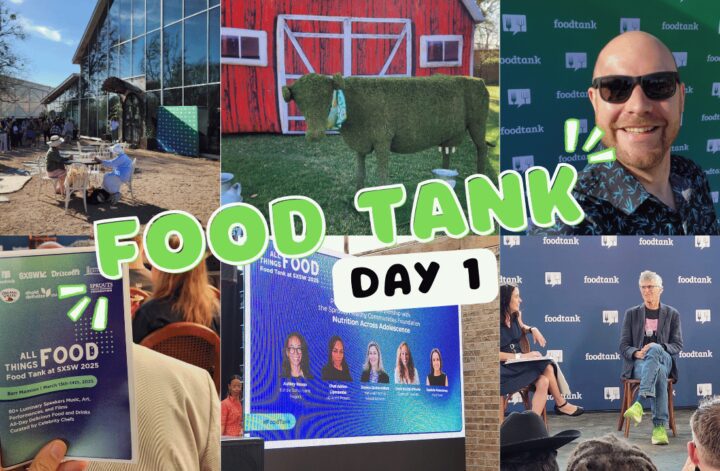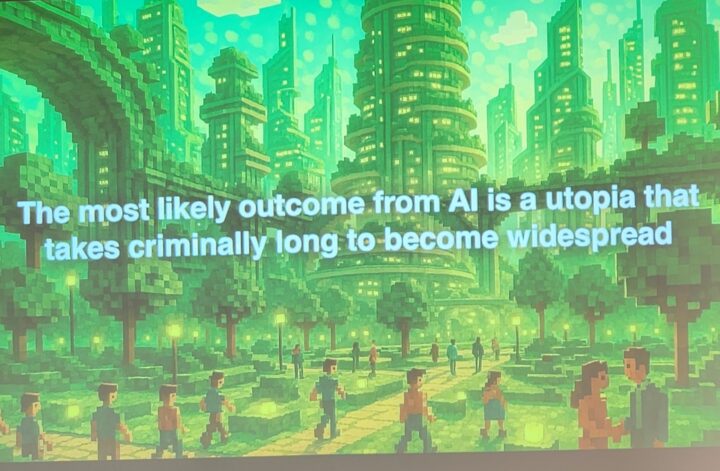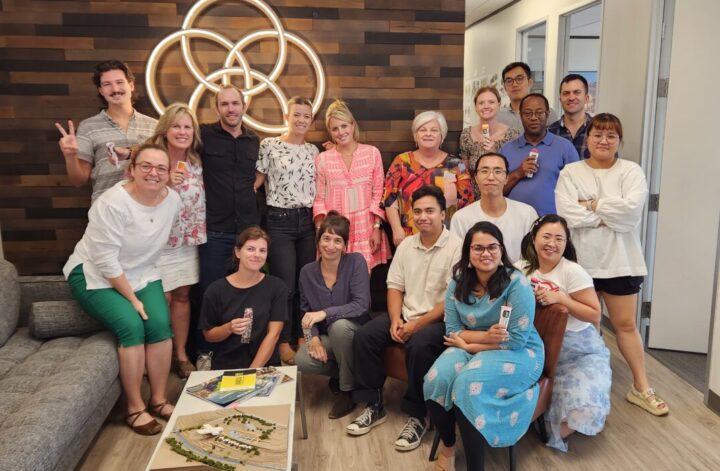This year’s Food Tank conference at SXSW took place on March 13-14 at the beautiful Barr Mansion in Austin, TX. As a returning attendee from 2024, I was eager to dive into the discussions shaping the future of food, sustainability, and nutrition. Food Tank consistently brings together thought leaders, industry experts, and changemakers to explore how food impacts our health, communities, and environment. The event fosters critical conversations about how we produce, distribute, and consume food in a way that supports both people and the planet. Below is my recap of Day 1, which was filled with insightful panels, inspiring speakers, and thought-provoking conversations that left me feeling energized for the future of sustainable food systems.
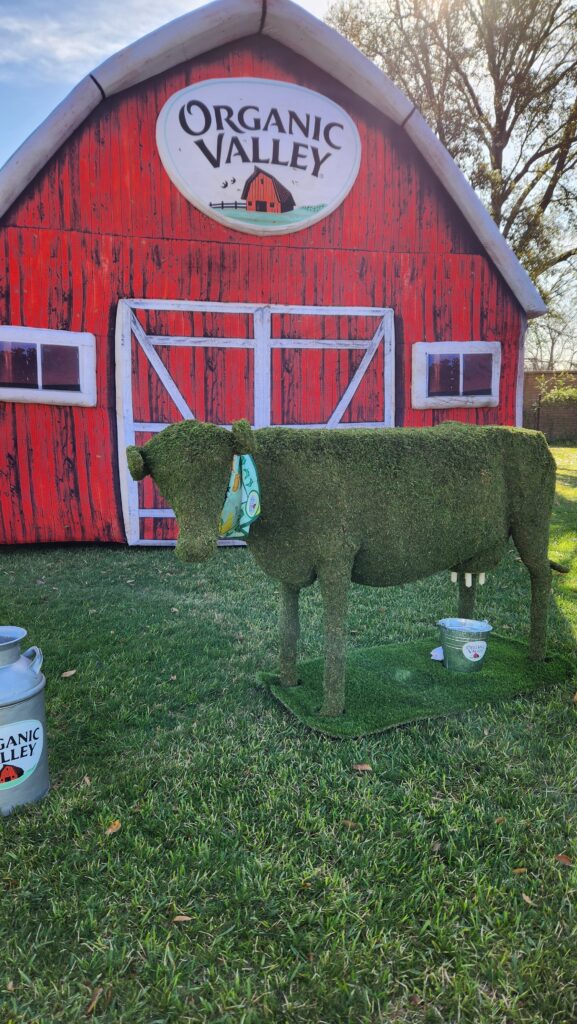
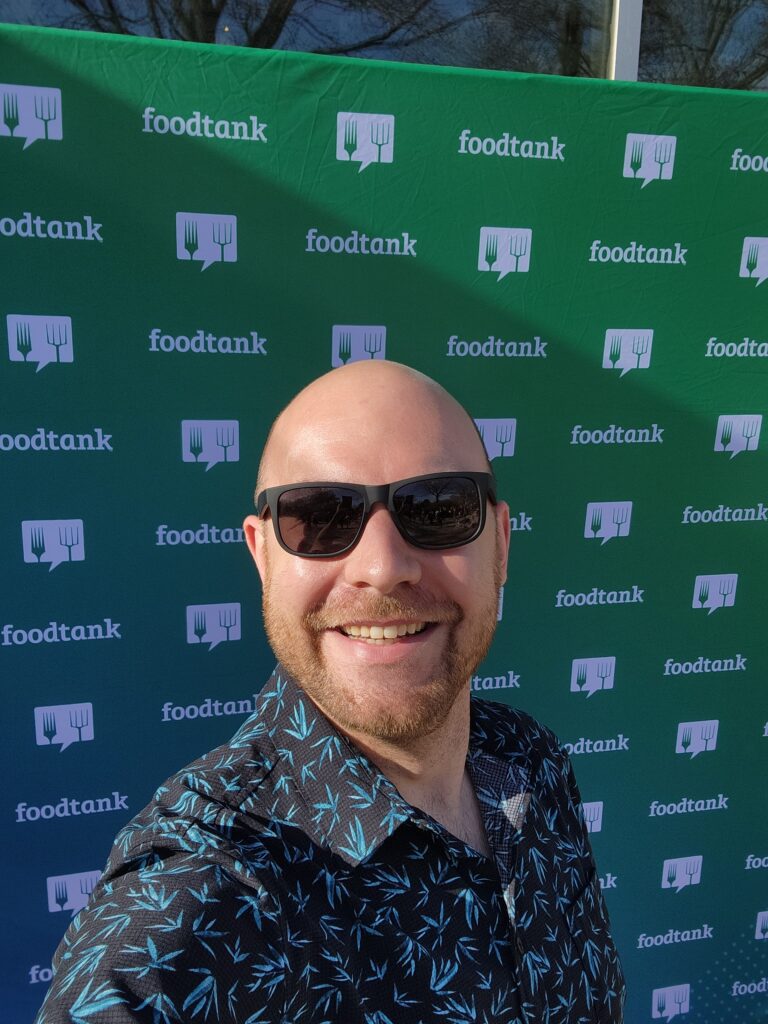
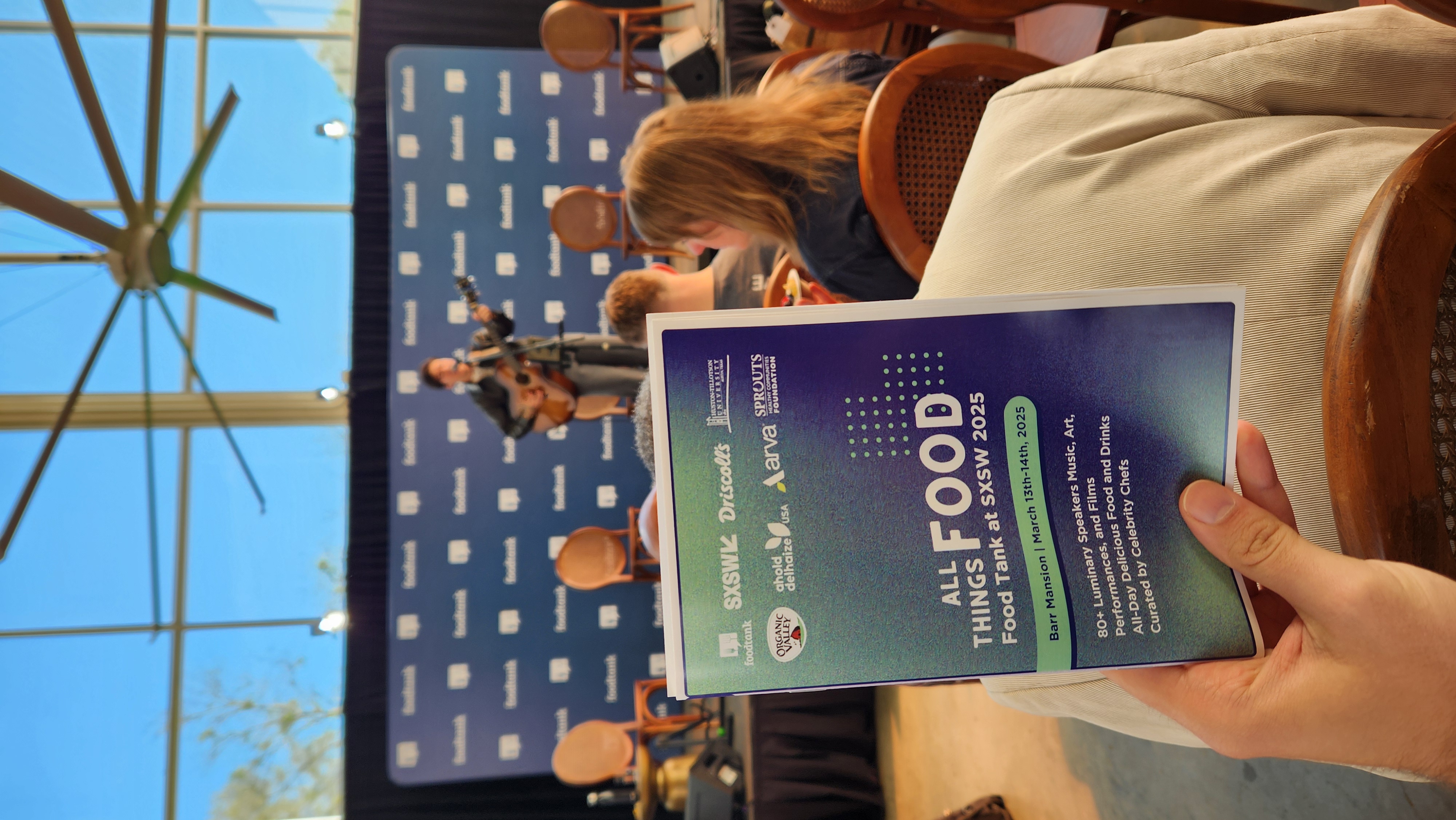
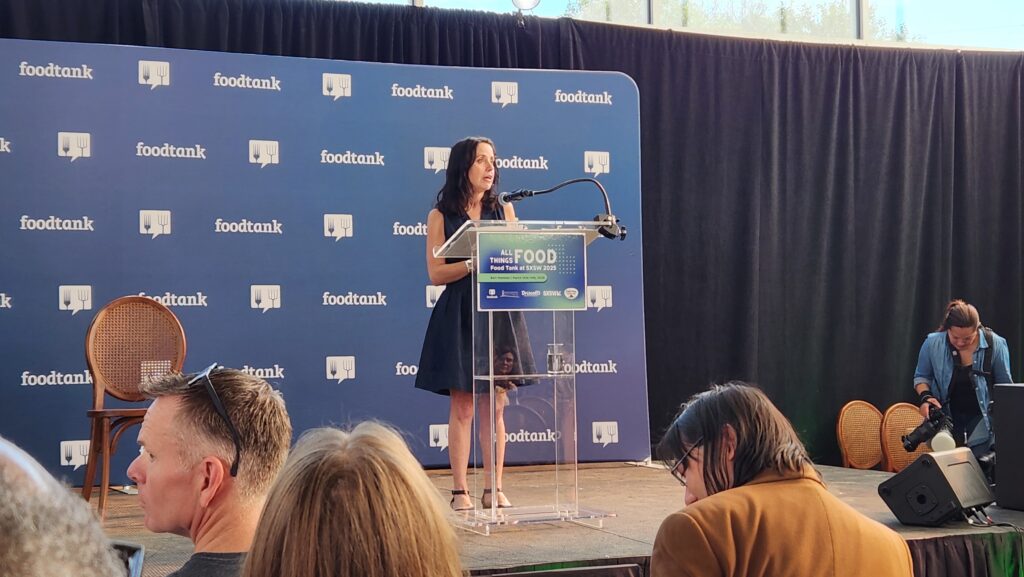
Welcome Remarks
The event opened with a powerful address from Dr. Melva K. Wallace, President of Huston-Tillotson University. She set the stage with some punny jokes and by emphasizing the importance of equitable access to nutritious food and the role of community-driven solutions in tackling food insecurity. Dr. Wallace highlighted the interconnectedness of food, health, and socioeconomic status, reminding attendees that systemic change requires both grassroots efforts and policy-driven initiatives. Her remarks underscored the significance of partnerships between educational institutions, nonprofits, and policymakers in advancing food justice. It was an inspiring start to the conference, reinforcing why discussions like these are crucial in addressing the disparities in our food systems. Watch her remarks here.
Key Panels and Discussions
The Real Impact of Healthy Food Access on Communities
Access to healthy food is not just a matter of convenience—it directly impacts public health, economic stability, and social equity. This panel brought together experts from the American Heart Association, the CDC Foundation, and the U.S. Army to explore the ways in which food accessibility shapes community well-being. The discussion focused on how targeted public health initiatives, urban planning, and data-driven approaches can help bridge gaps in food access. Panelists shared success stories from various regions where interventions, such as mobile markets and community gardens, have significantly improved nutritional outcomes. Their insights made it clear that systemic change requires collaboration among governments, businesses, and local communities. Watch the full discussion here.
Building Trust in Food Systems: The Impact of Traceability Solutions on Food Safety
With foodborne illnesses and supply chain issues making headlines, the need for transparency in food systems has never been greater. This discussion, led by Jayson Berryhill of Wholechain and Blake Stok of Chicken of the Sea, examined how technology is transforming the way we track food from farm to table. Panelists explained how blockchain, AI, and digital ledgers are being used to enhance consumer confidence and prevent fraud in the industry. The conversation also touched on the challenges of implementing these technologies, particularly for small-scale producers who may lack the resources to adopt sophisticated tracking systems. Ultimately, the session highlighted how traceability is not just about food safety—it’s also a tool for building trust between consumers and brands. Watch the discussion here.
Scrapping Excess: A Food Waste Experiment
Food waste remains one of the most pressing environmental challenges of our time, and this panel brought together industry leaders from Whole Foods Market, ReFED, and the City of Austin to explore solutions. Panelists shared eye-opening statistics about the volume of food discarded each year and the environmental impact of wasted resources. Discussions centered on innovative strategies, such as upcycling ingredients, improving food donation networks, and rethinking expiration date labeling. The panel also highlighted local efforts in Austin, where businesses and nonprofits are working together to redirect surplus food to those in need. It was a compelling session that underscored the need for both systemic policy changes and individual actions to reduce food waste. Watch the panel here.
Doing Good with Good Food: The Next Gen Leaders of Family-Owned Food Businesses
Family-owned food businesses have long played a vital role in shaping sustainable agriculture and ethical sourcing practices. This discussion featured leaders from Driscoll’s, Katzman, Vallarta Supermarkets, and Lundberg Family Farms, who shared their experiences in balancing tradition with innovation. Panelists spoke about the challenges of adapting to consumer demand for sustainable and ethically sourced products while maintaining the values their companies were founded on. They also emphasized the importance of supporting local farmers and investing in regenerative agriculture to ensure long-term food security. The conversation shed light on how these businesses are not just about profit—they are deeply committed to making a positive impact on the food industry. Watch the panel here.
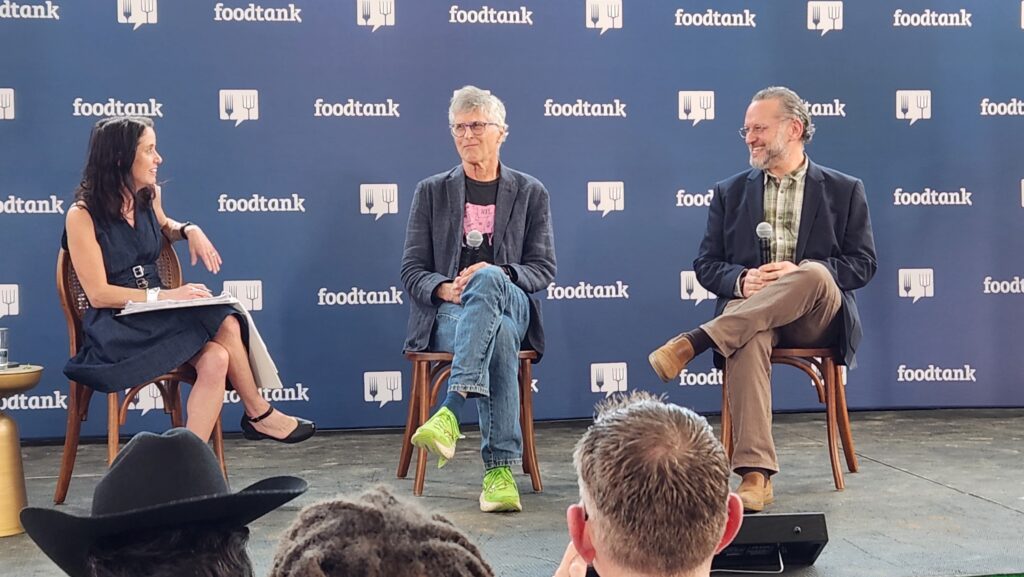
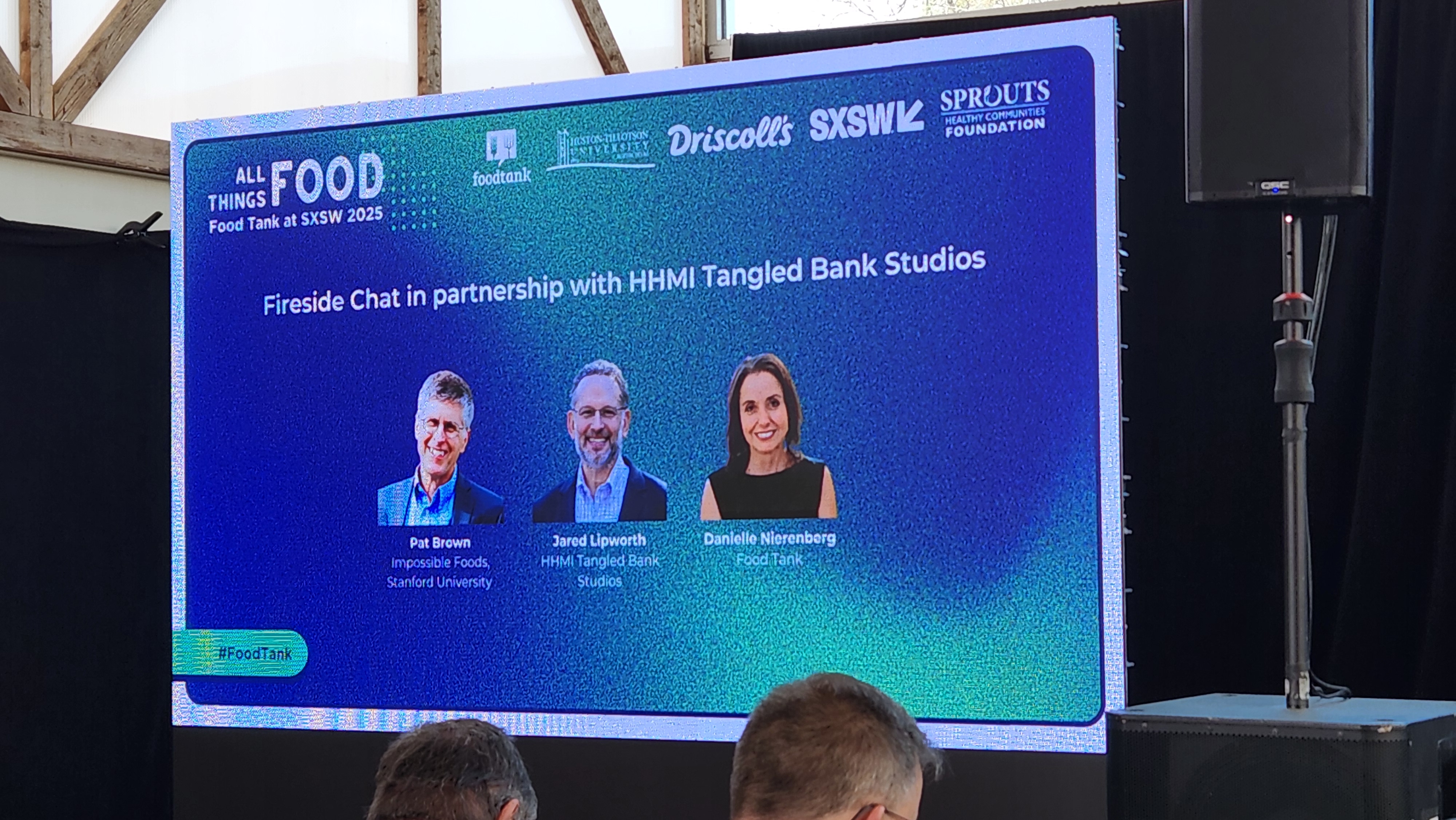
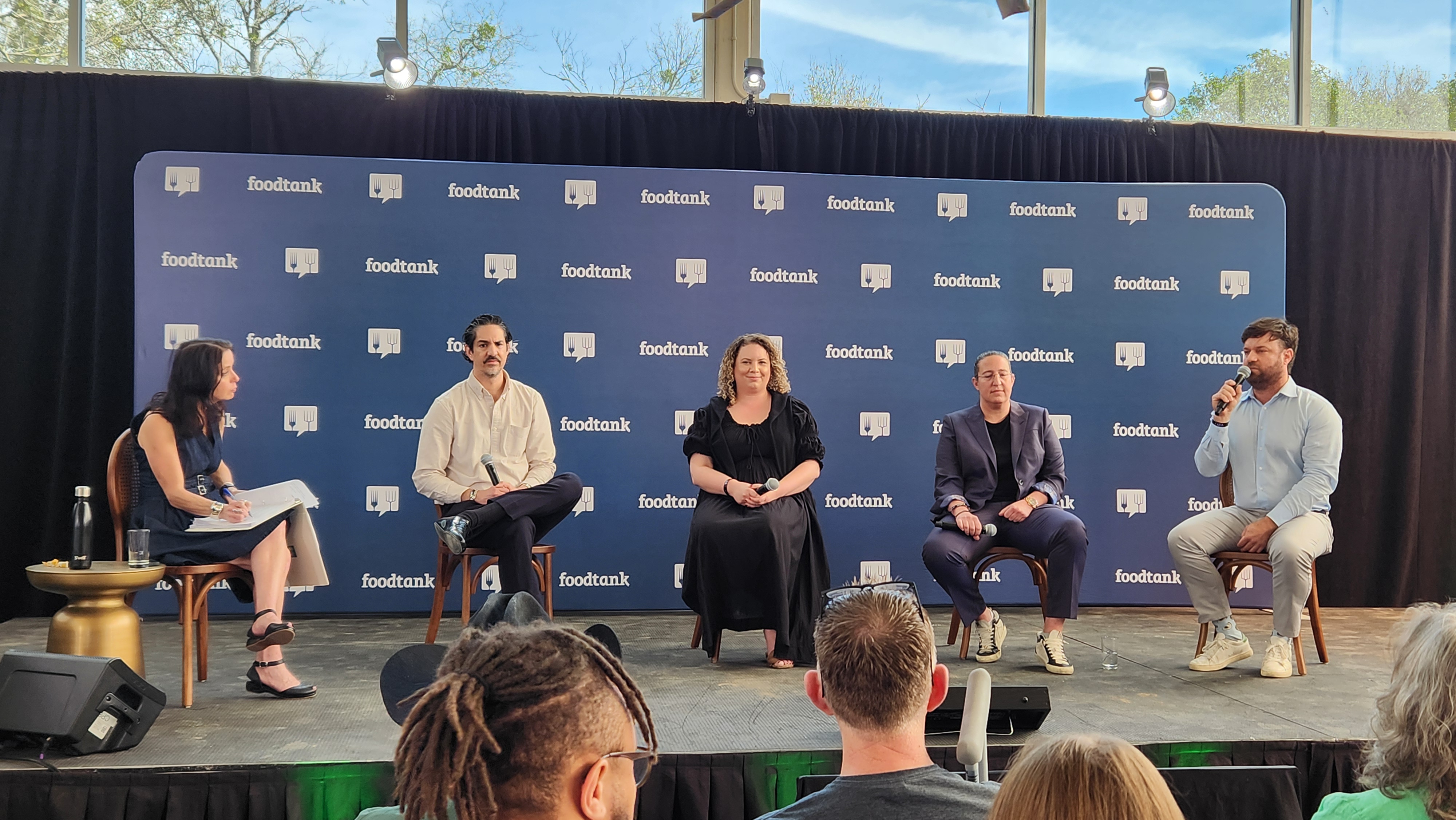
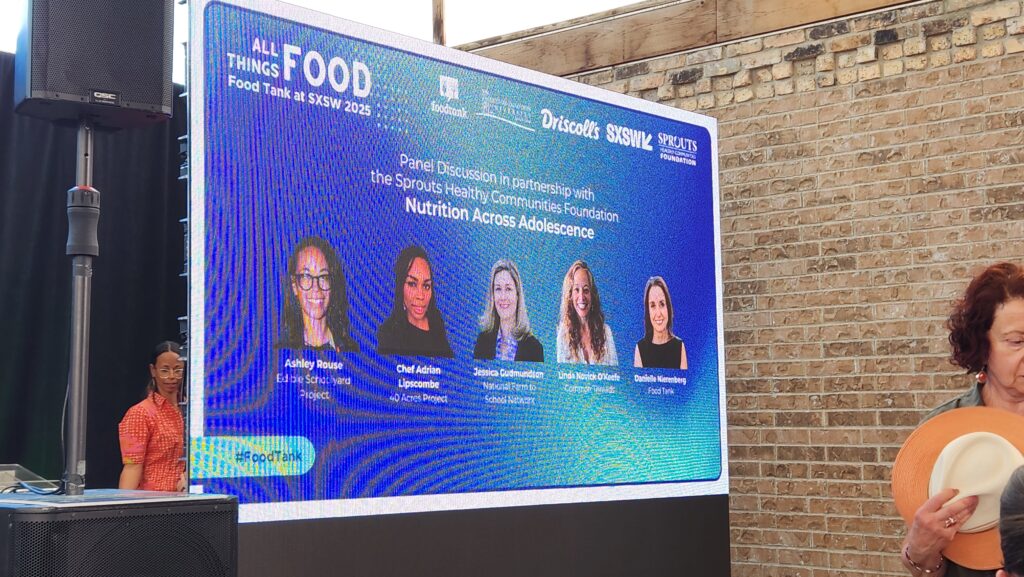
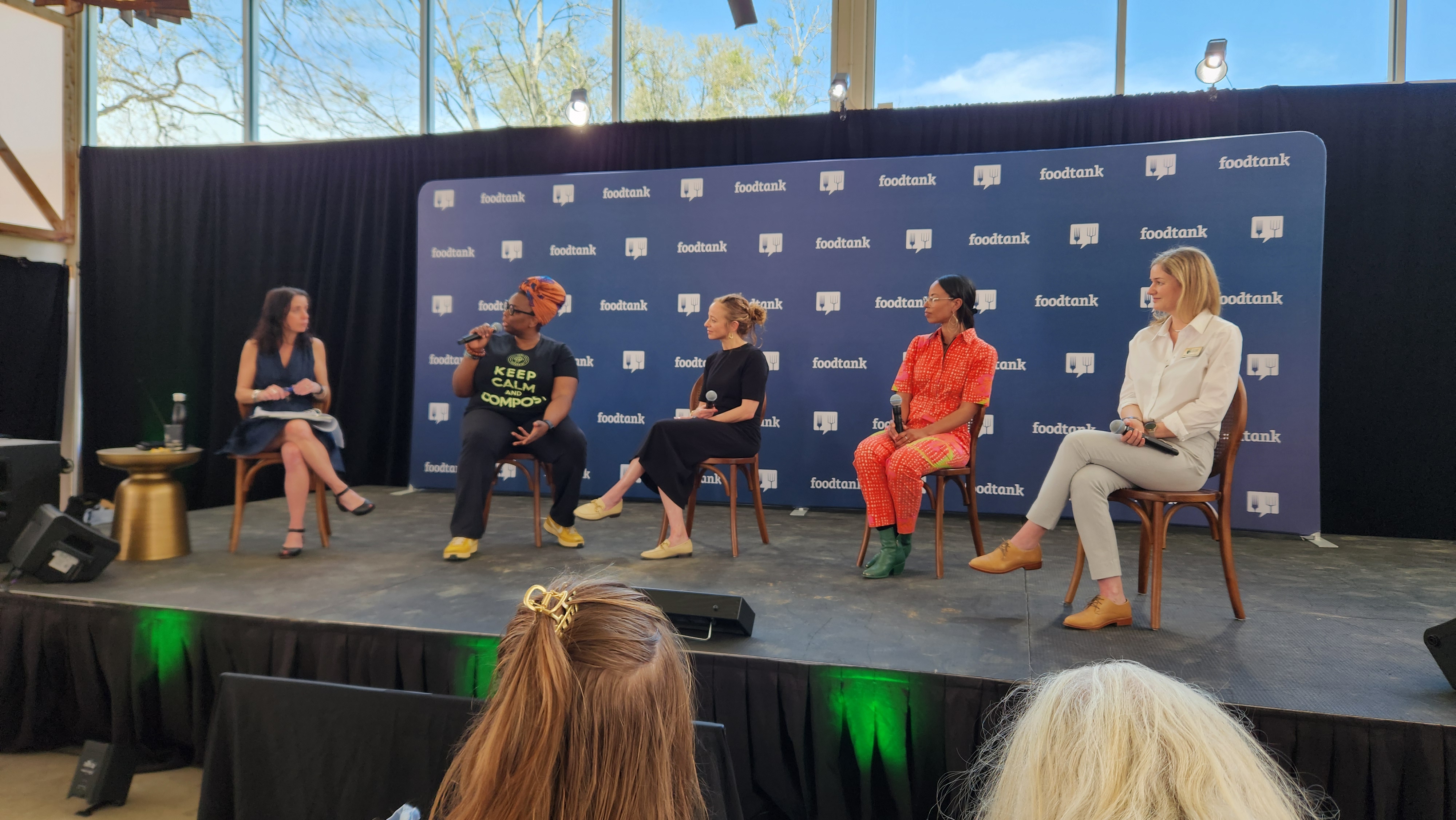
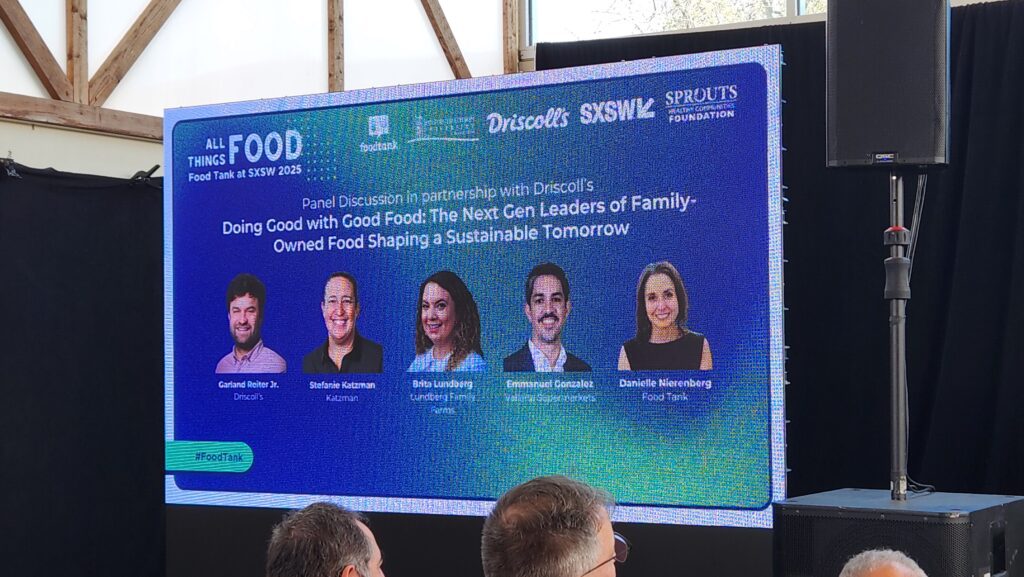
Fireside Chats and Special Sessions
Fireside Chat with Pat Brown and Jared Lipworth
Pat Brown, the visionary founder of Impossible Foods, engaged in an insightful discussion with Jared Lipworth of HHMI Tangled Bank Studios. Their conversation revolved around the intersection of food innovation and sustainability, particularly the role of plant-based foods in reducing environmental impact. Brown shared his perspective on how shifting dietary habits away from animal products can contribute to combating climate change and preserving biodiversity. The session also touched on the challenges of scaling plant-based food solutions while ensuring affordability and accessibility. It was an inspiring look at the future of sustainable food innovation and the role of consumer behavior in driving change. Watch here.
For All, For Good: Closing the Nutrition Gap
Nutrition disparities remain a global challenge, and this session with Cécile Béliot and Ivan Giraud of Group Bel explored solutions to make nutritious food more accessible worldwide. The discussion highlighted initiatives aimed at tackling malnutrition, particularly among vulnerable populations such as children and low-income communities. Panelists discussed the importance of corporate responsibility in ensuring food equity, with examples of programs that provide fortified foods and educational resources. They also emphasized the need for public-private partnerships to scale these efforts effectively. The conversation reinforced that nutrition is a fundamental right, not a privilege. Watch the chat here.
Conversations on Food is Medicine and School Gardens
In collaboration with The Sprouts Healthy Communities Foundation, this session explored the role of school gardens and nutrition education in promoting healthier eating habits from an early age. Panelists discussed how hands-on gardening experiences help children build a deeper connection to food and make healthier choices. They also highlighted programs that integrate nutrition into school curriculums, emphasizing that early education is key to lifelong healthy habits. Attendees learned about successful models where schools, nonprofits, and local governments collaborate to ensure students have access to fresh, nutritious meals. It was an inspiring discussion on the power of education in shaping future generations. Watch here.
Nutrition Across Adolescence
Adolescence is a critical period for nutrition, yet many teens lack access to healthy foods and proper education on dietary choices. This panel, featuring experts from the Edible Schoolyard Project, Common Threads, and the Farm to School Network, examined the impact of nutrition on adolescent development and academic performance. Panelists discussed strategies to improve school meal programs, provide better nutrition education, and address food deserts affecting youth populations. The discussion reinforced the importance of creating environments where teens can develop healthy eating habits that will last a lifetime. Watch the panel here.
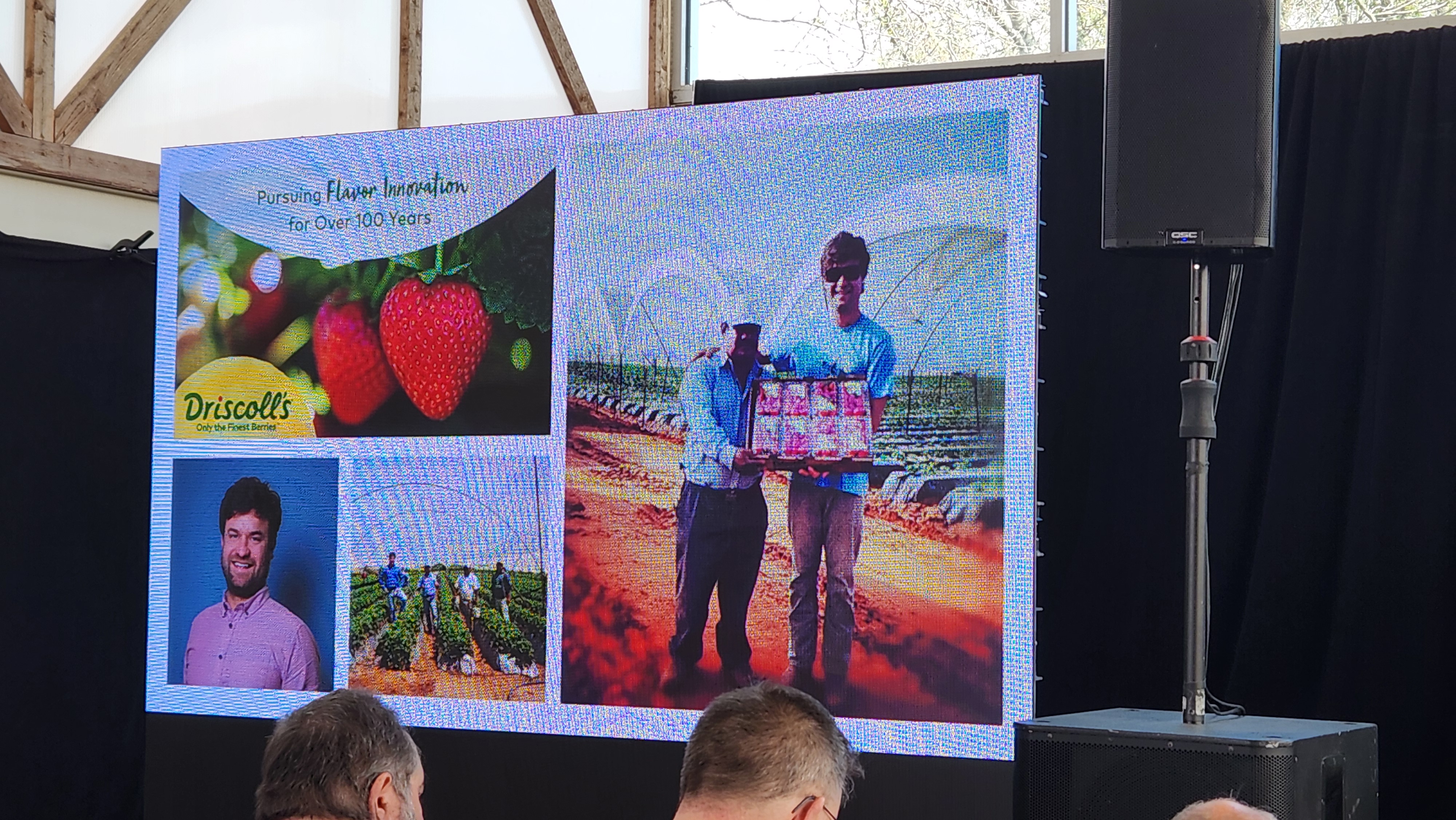

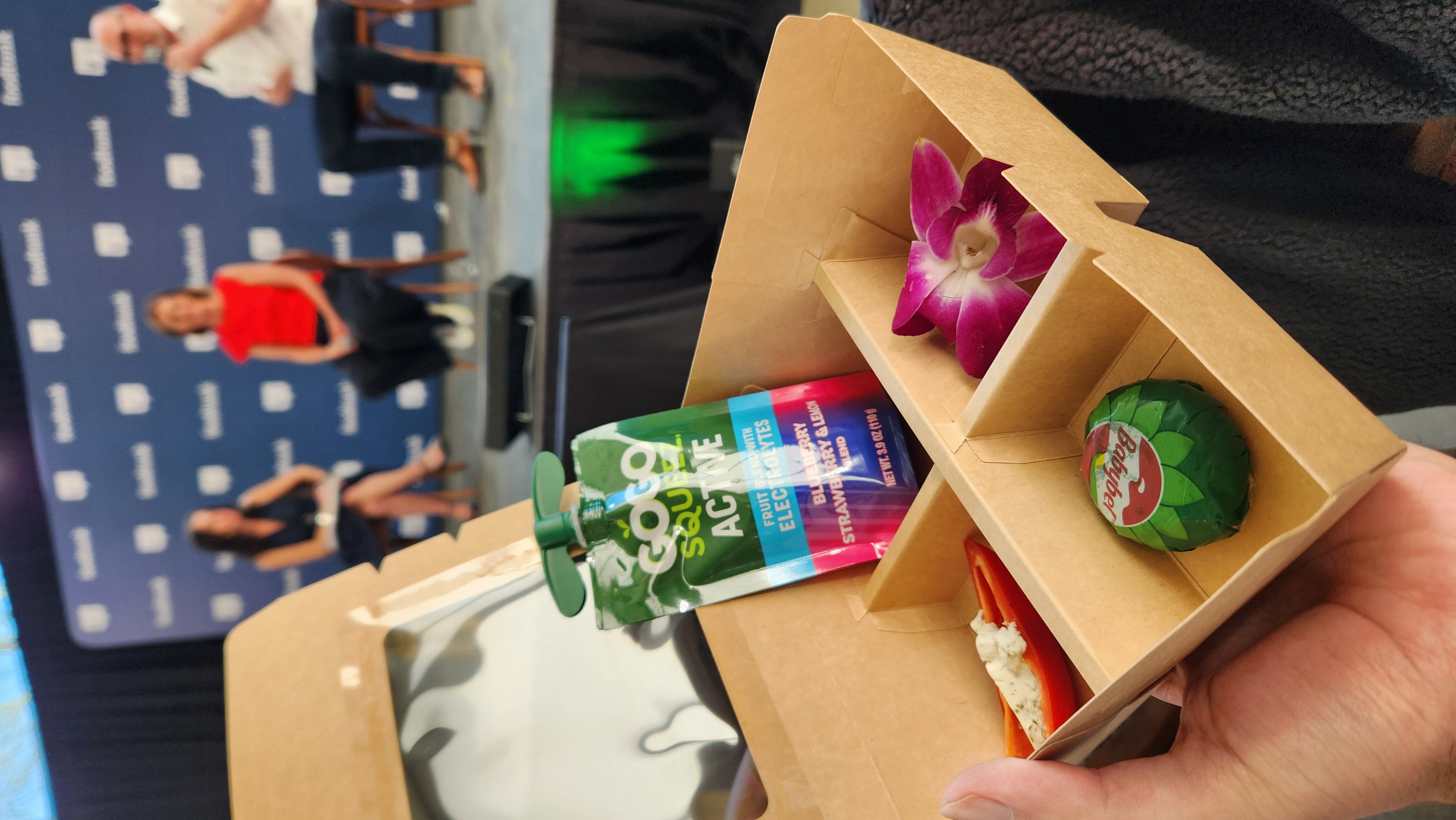
Closing Thoughts on Day 1
The first day of the Food Tank conference was filled with powerful conversations on food security, sustainability, and innovation. The breadth of topics—from food waste reduction to nutrition policy—underscored the urgent need for cross-sector collaboration in transforming our food systems. Each panel and discussion provided valuable insights into the future of food, leaving attendees inspired to take action in their own communities.
Stay tuned for my Day 2 recap, where I’ll share more insights from this impactful event!
*Content was generated with AI based on my notes and direction, then edited and refined by me for accuracy.

